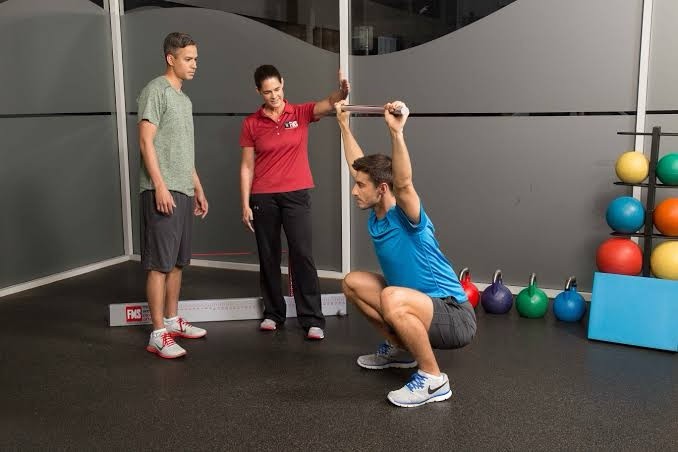
In the realm of physical fitness and athletic performance, the importance of movement quality cannot be overstated. Whether you’re a professional athlete, a fitness enthusiast, or someone simply aiming for a healthier lifestyle, understanding and optimizing your movement patterns is crucial for injury prevention, performance enhancement, and overall well-being. Enter Functional Movement Screening (FMS), a revolutionary tool designed to assess and address movement deficiencies, ultimately paving the way for optimal movement patterns and improved performance.
What is Functional Movement Screening (FMS)?
Functional Movement Screening (FMS) is a systematic approach used to evaluate movement patterns and identify potential limitations or dysfunctions in an individual’s mobility, stability, and overall movement quality. Developed by physical therapist Gray Cook and his colleagues, FMS aims to detect imbalances and asymmetries that may predispose individuals to injuries or hinder their performance in various physical activities.
The Core Principles of FMS:
- Movement Patterns: FMS focuses on fundamental movement patterns that are essential for daily activities and athletic performance, such as squatting, lunging, bending, pushing, pulling, and rotating.
- Quality Over Quantity: FMS prioritizes movement quality over quantity or intensity. It emphasizes proper technique and neuromuscular coordination rather than solely focusing on strength or endurance.
- Individualized Assessment: FMS recognizes that each person has unique movement patterns and capabilities. Therefore, assessments are tailored to the individual’s specific needs and goals.
- Injury Prevention: By identifying movement dysfunctions and addressing them through targeted corrective exercises, FMS helps prevent injuries by improving movement mechanics and reducing biomechanical stress on the body.
- Performance Enhancement: Beyond injury prevention, optimizing movement quality through FMS can lead to enhanced athletic performance, agility, speed, and overall physical prowess.
The FMS Assessment Process: The FMS assessment typically consists of seven fundamental movement patterns, known as the Functional Movement Screen:
- Deep Squat
- Hurdle Step
- Inline Lunge
- Shoulder Mobility
- Active Straight Leg Raise
- Trunk Stability Push-Up
- Rotary Stability
Title: Unveiling the Power of Functional Movement Screening: A Comprehensive Guide
Introduction: In the realm of physical fitness and athletic performance, the importance of movement quality cannot be overstated. Whether you’re a professional athlete, a fitness enthusiast, or someone simply aiming for a healthier lifestyle, understanding and optimizing your movement patterns is crucial for injury prevention, performance enhancement, and overall well-being. Enter Functional Movement Screening (FMS), a revolutionary tool designed to assess and address movement deficiencies, ultimately paving the way for optimal movement patterns and improved performance.
What is Functional Movement Screening (FMS)? Functional Movement Screening (FMS) is a systematic approach used to evaluate movement patterns and identify potential limitations or dysfunctions in an individual’s mobility, stability, and overall movement quality. Developed by physical therapist Gray Cook and his colleagues, FMS aims to detect imbalances and asymmetries that may predispose individuals to injuries or hinder their performance in various physical activities.
The Core Principles of FMS:
- Movement Patterns: FMS focuses on fundamental movement patterns that are essential for daily activities and athletic performance, such as squatting, lunging, bending, pushing, pulling, and rotating.
- Quality Over Quantity: FMS prioritizes movement quality over quantity or intensity. It emphasizes proper technique and neuromuscular coordination rather than solely focusing on strength or endurance.
- Individualized Assessment: FMS recognizes that each person has unique movement patterns and capabilities. Therefore, assessments are tailored to the individual’s specific needs and goals.
- Injury Prevention: By identifying movement dysfunctions and addressing them through targeted corrective exercises, FMS helps prevent injuries by improving movement mechanics and reducing biomechanical stress on the body.
- Performance Enhancement: Beyond injury prevention, optimizing movement quality through FMS can lead to enhanced athletic performance, agility, speed, and overall physical prowess.
The FMS Assessment Process: The FMS assessment typically consists of seven fundamental movement patterns, known as the Functional Movement Screen:
- Deep Squat
- Hurdle Step
- Inline Lunge
- Shoulder Mobility
- Active Straight Leg Raise
- Trunk Stability Push-Up
- Rotary Stability
During the assessment, a trained practitioner observes and evaluates the individual’s performance in each movement pattern, looking for asymmetries, compensations, limitations, or pain. Based on the findings, a score is assigned to each movement, indicating the level of dysfunction or proficiency.
Implementing Corrective Strategies:
Once movement dysfunctions are identified through FMS, the next step involves implementing targeted corrective strategies to address these issues. These corrective strategies may include mobility exercises, stability drills, neuromuscular re-education, and movement patterning exercises tailored to the individual’s specific needs.
Benefits of Functional Movement Screening:
- Injury Prevention: By identifying and correcting movement dysfunctions, FMS helps reduce the risk of injuries associated with poor movement mechanics.
- Performance Optimization: Improved movement quality leads to enhanced athletic performance, agility, and efficiency of movement.
- Enhanced Movement Awareness: FMS enhances individuals’ awareness of their movement patterns, empowering them to make necessary adjustments and improvements.
- Individualized Training Programs: FMS results inform the development of personalized training programs that address each individual’s unique movement needs and goals.
- Long-Term Health and Well-Being: By promoting proper movement mechanics and mitigating injury risks, FMS contributes to long-term physical health and well-being.
Functional Movement Screening (FMS) represents a paradigm shift in the way we approach physical fitness, sports performance, and injury prevention. By assessing and addressing movement dysfunctions, FMS empowers individuals to move more efficiently, perform better, and reduce the risk of injury. Whether you’re an athlete striving for peak performance or someone simply seeking to improve your movement quality and overall well-being, integrating FMS into your training regimen can be a game-changer. Embrace the power of functional movement screening and unlock your full movement potential.
[/et_pb_text][/et_pb_column][/et_pb_row][/et_pb_section]Inflammatory foods contributes to inflammation in the body

Pingback: Manual Therapy at Quantum Physiotherapy